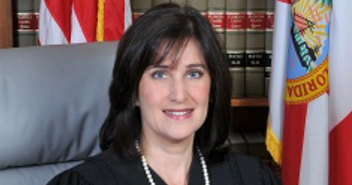Seminole Tribe, Pari-mutuels Reach Sports Betting Agreements
TALLAHASSEE (CBSMiami/NSF) -- Continuing to move forward with a major gambling deal with the state, the Seminole Tribe of Florida has reached agreements with five pari-mutuel facilities to help market sports betting.
The gambling deal, which was negotiated by Gov. Ron DeSantis this spring and approved by lawmakers during a May special session, allows the tribe to operate online sports betting that will be available to people throughout the state.
But part of the deal also called for the tribe to negotiate agreements with pari-mutuel facilities that would market sports betting and get a 60 percent cut of profits generated by the marketing. The tribe announced Thursday that it has reached agreements with the Palm Beach Kennel Club; Hialeah Park Casino; Ocala Gainesville Poker and Ocala Breeders' Sales Co.; Tampa Bay Downs; and TGT Poker & Racebook in Tampa.
The tribe, which said it expects to sign agreements with other pari-mutuels, has not announced when sports betting will start.
"Today's announcement follows through on the tribe's commitment to include pari-mutuel marketing partners in Florida sports betting," Jim Allen, CEO of Seminole Gaming and chairman of Hard Rock International, which is owned by the Seminole Tribe, said in a prepared statement. "They are an important component for the coming launch of sports betting throughout the state of Florida."
Sports betting was banned in most of the country until the U.S. Supreme Court in 2018 struck down a federal law in a New Jersey case. Since then, many states have started allowing betting on sporting events, at least in part as a way to bring in tax dollars.
The new Florida law will allow gamblers anywhere in the state to place sports bets on smartphones or other online devices, with the bets run through servers on Seminole Tribe property. Pari-mutuels that enter contracts with the tribe will market sports betting at their facilities.
Under the deal, known as a compact, the tribe is expected to pay $2.5 billion to the state over the first five years. That is in exchange for being allowed to operate sports betting and offer games such as craps and roulette at tribal casinos.
The tribe said Thursday the state received a first payment of $37 million in October. DeSantis issued a statement describing the compact as "historic."
"Not only will this compact bring a guaranteed $2.5 billion in revenue over the next five years, but it also brings together Florida pari-mutuel businesses from across the state in a creative partnership with the Seminole Tribe providing increased access to safe and transparent sports betting in Florida," DeSantis said.
But the compact has drawn legal challenges, at least in part because of the sports betting plan.
Owners of the pari-mutuels Magic City Casino in Miami-Dade County and Bonita Springs Poker Room in Southwest Florida have filed a federal lawsuit in Washington, D.C., as have two prominent South Florida businessmen and the group No Casinos.
Those pending lawsuits were filed against the U.S. Department of the Interior, which oversees Indian gambling issues and allowed the compact to move forward.
The owners of Magic City Casino and Bonita Springs Poker Room also filed a federal lawsuit in Tallahassee, but U.S. District Judge Allen Winsor dismissed that case this month.
Among other things, the owners of Magic City Casino and Bonita Springs Poker Room have argued that sports betting operated by the tribe will hurt their businesses.
"The 2021 compact will significantly harm plaintiffs' businesses by introducing online gaming into Florida and granting the tribe the exclusive right to engage in it," the lawsuit filed in Tallahassee said. "As a result, anyone physically located in Florida, including plaintiffs' customers, will be able to engage in sports betting online with the tribe from their home or from any Florida location where they have access to an internet connection. This approval will therefore have a significant and potentially devastating competitive impact on plaintiffs and the brick-and-mortar businesses who depend for their profits on individuals coming into their businesses to engage in gaming activities."
(©2021 CBS Local Media. All rights reserved. This material may not be published, broadcast, rewritten, or redistributed. The News Service of Florida's Jim Saunders contributed to this report.)




